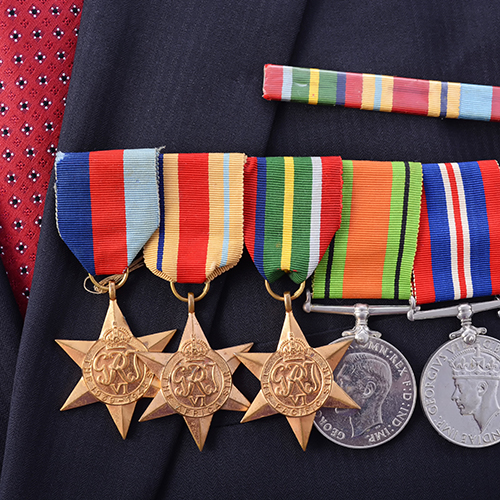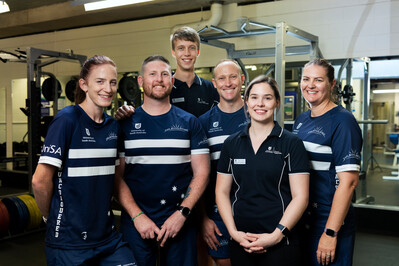17 November 2023
 Originating to help defence veterans train for and participate in the Invictus Games, UniSA’s Invictus Pathway Program (IPP) has now proven its weight in gold to help South Australian-based veterans and current defence force personnel better manage their physical, social, and mental health.
Originating to help defence veterans train for and participate in the Invictus Games, UniSA’s Invictus Pathway Program (IPP) has now proven its weight in gold to help South Australian-based veterans and current defence force personnel better manage their physical, social, and mental health.
Developed in partnership with The Road Home (now Military and Emergency Services Health Australia (MESHA), a charity of The Hospital Research Foundation), the IPP helps participants who have experienced physical, emotional and/or psychological injuries attributed to their service rehabilitate, recover, and reintegrate into the community. The program is framed on physical activity and one-on-one student-delivered exercise training
Now, a new University of South Australia study shows that the IPP is an extremely valuable support program for veterans, helping them in their post-traumatic growth and transforming their physical, social, and mental wellbeing, as well as providing them with a renewed sense of identity, purpose, direction, and life goals.
It also provides invaluable clinical experience for South Australia’s future exercise and allied health professionals.
The study precedes the 2023 Senate Inquiry report into the value of adaptive sport programs for Australian Defence Force (ADF) veterans, where the IPP was acknowledged as an exemplar of providing care to serving members as they transition from service to civilian life
About 6000 military personnel transition out of the ADF each year with about 18% discharged on medical grounds. While the number of combat casualties has decreased, the number of returned injured military personnel has increased, notably at a younger age, putting demands on rehabilitation services and increasing associated healthcare costs.
Member of the research team, UniSA’s Dr Dannielle Post, says the IPP provides psychological assessment, fitness training and testing in state-of-the-art facilities, support programs, and access to the expertise of UniSA’s leading health professionals and students. She says it presents a holistic approach to veteran wellbeing.
“For some, military service can result in negative impacts on physical and mental wellbeing, and in cases where these impacts mean that the person is no longer able to serve, the transition from Defence can further exacerbate physical and mental ill health,” Dr Post says.
“The IPP was designed to support military personnel by harnessing the power of sport and exercise, to promote rehabilitation, recovery, and reintegration into the community.
“Our study shows that veterans’ physical, mental, and social wellbeing improved through a range of physical activity and exercise programs. Some people reported feeling healthier, more positive about their life and circumstances, and more connected with their community.”

UniSA Students and participants of the UniSA Invictus Pathways Program
Comments from veterans who participated in the early offerings of the IPP reported positive impacts on their physical and psychological health including:
- “I feel stronger and fitter. I feel healthier… I feel like I want to help myself…”
- “I went from being a survivor to starting living again which was really, really good.”
- “…that actual feeling of community, being part of something again. I think for me that’s been the most positive.”
- “I think the socialisation and integration are the most important bits… you’re creating an environment where there’s a big bunch of people, you’re getting people out.
- “I loved it from the very first session, you know. I felt a change in me, in my mindset I guess, from the very first time I walked into the gym with my trainer.”
- I still have nightmares… but having started this Program, it’s allowed me to force myself to come back in to … I call it the edge of society.”
Veterans also reported they appreciated the opportunities to re-engage in the community through adaptive sports, that they felt a sense of belonging in UniSA’s environment and highlighted their ability to continue to serve the community through supporting student learning.
The IPP now includes first responders in the exercise training component of the program and has evolved beyond preparing veterans to compete in the Invictus Games.
Underpinned by a holistic, student-delivered interdisciplinary approach, the program will continue to support the engagement of veterans and their families in the community and the wellbeing of the veterans and their families.
………………………………………………………………………………………………………………………….
Media contact: Annabel Mansfield M: +61 479 182 489 E: Annabel.Mansfield@unisa.edu.au
Researcher: Dr Dannielle Post E: Dannielle.Post@unisa.edu.au


